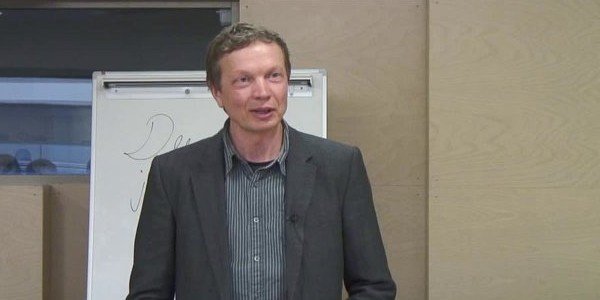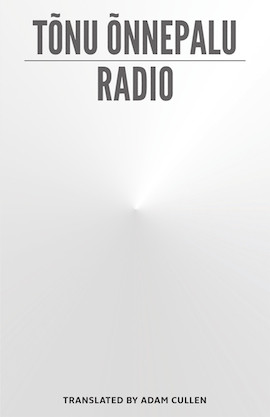“A bus ticket from Tallinn to Tartu costs twenty Estonian kroons” is how Tõnu Õnnepalu’s hefty tome Radio begins, and it is indeed hefty. As opening sentences go, it’s devoid of much beyond the literal meaning but it sets the scene for much of the following 600 odd pages.
The narrator, an openly gay Estonian filmmaker, is returning to his homeland after a decade spent living in Paris. The contrasts between the glitz and glamour of France and the drab, grey coldness of the pre-EU Estonia become quickly apparent (especially as the narrator has a habit of including the French for certain words in parenthesis). Stuck in a permanent identity crisis and with self-esteem at the doldrums, he weaves together a memoir of a love affair, his thoughts on returning home, and a caustic guidebook to modern Estonia, its history and people. It is the latter in which I think it shines most.
Aside from the narrator, the only character of whom we ever see more than two dimensions is Liz Franz (always “Liz Franz” – never “Liz”), a famous singer and former (heterosexual) paramour of our narrator. Her rise to stardom, career, interests and foibles is described in detail and clarity. Yet the other, more minor characters drift in and out in a transient fashion, not unlike the cardboard cutouts you see at shooting ranges, and you care about them almost as much.
Where the novel shines, however, is in its description of near-contemporary Estonia. Õnnepalu’s description of an unemployed husband is spot on:
“His wife works and ensures the family’s economic subsistence, and often very successfully, at that. The husband has lost his job or has not yet found himself in the professional field. He sometimes has creative ambitions. He plans to start writing opinion pieces (opinions) for the newspaper, although initially limits this to participation on Internet commentary pages, where he publishes fairly politically-incorrect positions concerning ‘blacks’ (who are practically non-existent in Estonia), Russians (Estonia’s primary minority), gays, women, politicians, as well as other social categories and phenomena.”
Sound like anyone you know? The book is littered with other witty and erudite observations on modern Estonian life and people, and would probably make a disturbing reading for them, although I hardly think they’ll be reading Radio.
What makes the novel rather heavy weather though, is the lack of sympathy one has with any of the characters. Our interlocutor’s narcissism not only drains sympathy from the reader at a rate of gallons, but the drab and lifeless characters he interacts with are seen only through his own eyes, clouded with self-obsession.
As the novel ploughs on, even the sparkling witticisms on Estonian life break up the narrative too much. You get the impression that the same story could have been told in a book one third of the size.
Still, Õnnepalu follows in the great tradition of other literary classics and this is worthy of much praise – the only problem with Radio is that by the end, you really don’t give a damn.
I
Tõnu Õnnepalu’s book “Radio” was published in English by Dalkey Archive Press in March. Translation by Adam Cullen.
Cover photo: Tõnu Õnnepalu.


